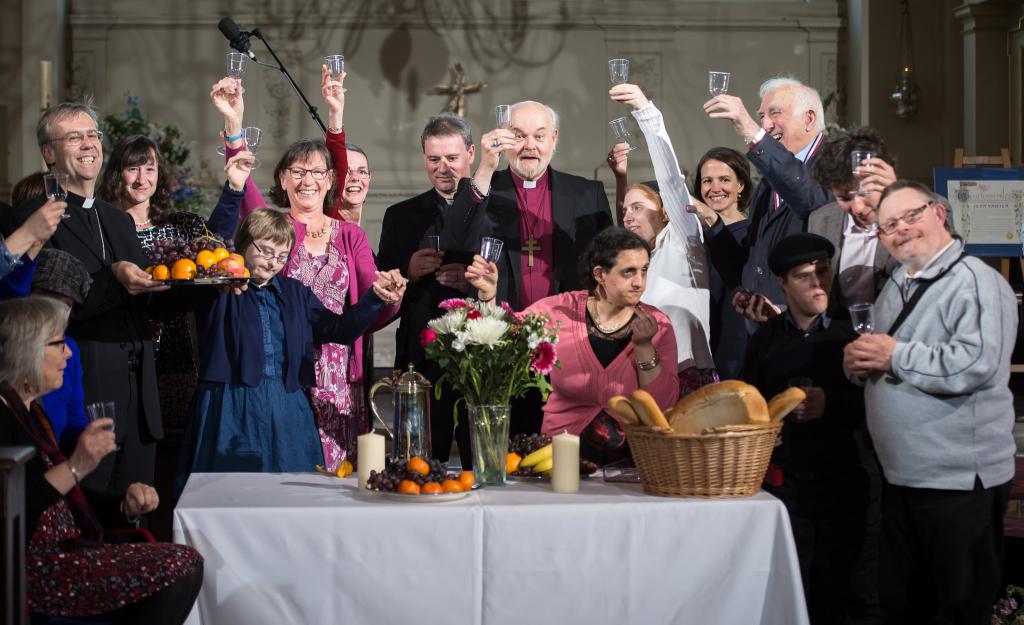by Bishop Nicholas Hudson
‘Do you love me?’ That was the cry Jean Vanier heard in the people with an intellectual disability whom he met in a Picardy psychiatric hospital in 1964. His heart was so touched that he invited two of them to share his home. He called it ‘L’Arche’, the Ark. Jean used to say he had no idea that he was creating a world movement: ‘All I knew was that I was doing something irrevocable,’ he said.
I first met Jean when I was a young priest getting to know the L’Arche community in Canterbury, L’Arche’s first in the UK. Jean invited me to join him in leading retreats for hundreds of Assistants, young adults who had come from all over the world to share their lives with people who had an intellectual disability. Listening to them opened my eyes to a profound truth, so often expressed by Jean himself: if you share your life with the poor, they will change you.
Jean said in his last book, A Cry is Heard, that he discovered in people with an intellectual disability nothing less than ‘a path towards God’. He said he had grown used to people thinking those with an intellectual disability ‘are poor little things we need to take care of’ but he knew them to be, in fact, nothing less than ‘messengers from God’, ‘messengers from God who bring us closer to Jesus.’
Relationship with Jesus was at the heart of Jean’s whole way of being. He loved the Gospel of St John. He understood his whole life to be a response to Jesus’s invitation to ‘make your home in me’ (Jn 15:4), a response to the cry which is at the heart and climax of John’s Gospel, where Jesus asks his friend, ‘Do you love me?’ (Jn 21:15). ‘How are things between you and Jesus?’ he would ask those who came to him for spiritual accompaniment, in a way which both challenged
and consoled.
His other great love was Aristotle. Aristotelian aphorisms would pepper and enliven his retreats to great effect: ‘To be good friends, you need to have shared a sack of salt’ and ‘He who is not loved seeks to be admired’ were just two of them.
But Jean’s most enduring legacy will surely be the prophetic. I heard it given most eloquent expression as I stood in St Peter’s Square, Rome, for the Great Jubilee of New Ecclesial Movements in the Year 2000. As each Movement presented itself to Pope St John Paul II, Jean chose simply to say, ‘Holy Father, I want to tell you about a little man called Antonio who died last week. He was one of the frailest members of our community and yet he was at its heart.’
Jean was describing, in fact, one of the most disabled people I have ever met: paraplegic and mute, and yet with a radiant smile which created an extraordinary communion around him! ‘People like Antonio,’ Jean proclaimed to the masses, ‘God is using to announce the kingdom.’ And quoting St Paul, Jean went on to say, ‘“What the world considers folly, God has chosen to confound the wise” (1 Cor 1:27).’
Antonio and so many others knew themselves to be ‘strangers’ in this world. What joy to imagine the ecstasy as each of them waits his or her turn now to tell him, ‘I was a stranger, Jean, and you welcomed me. You heard
my cry and made your home in me.’
Jean Vanier, born 10th September 1928, died 7th May 2019.




